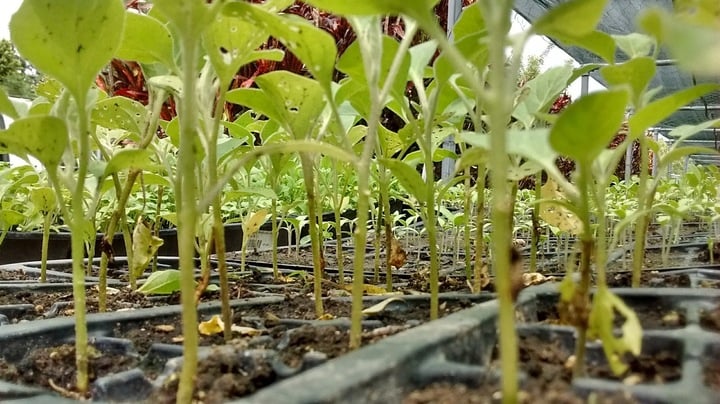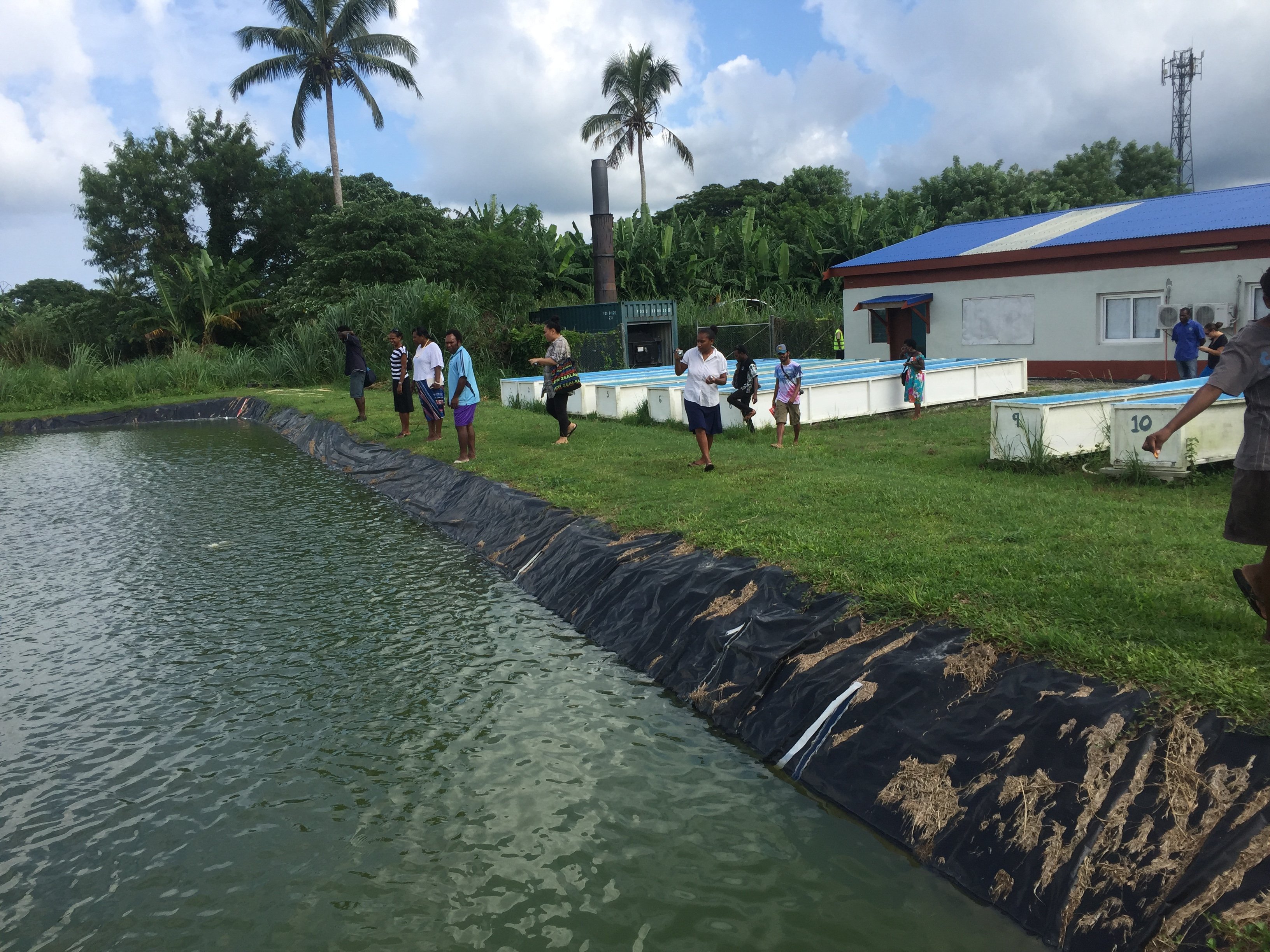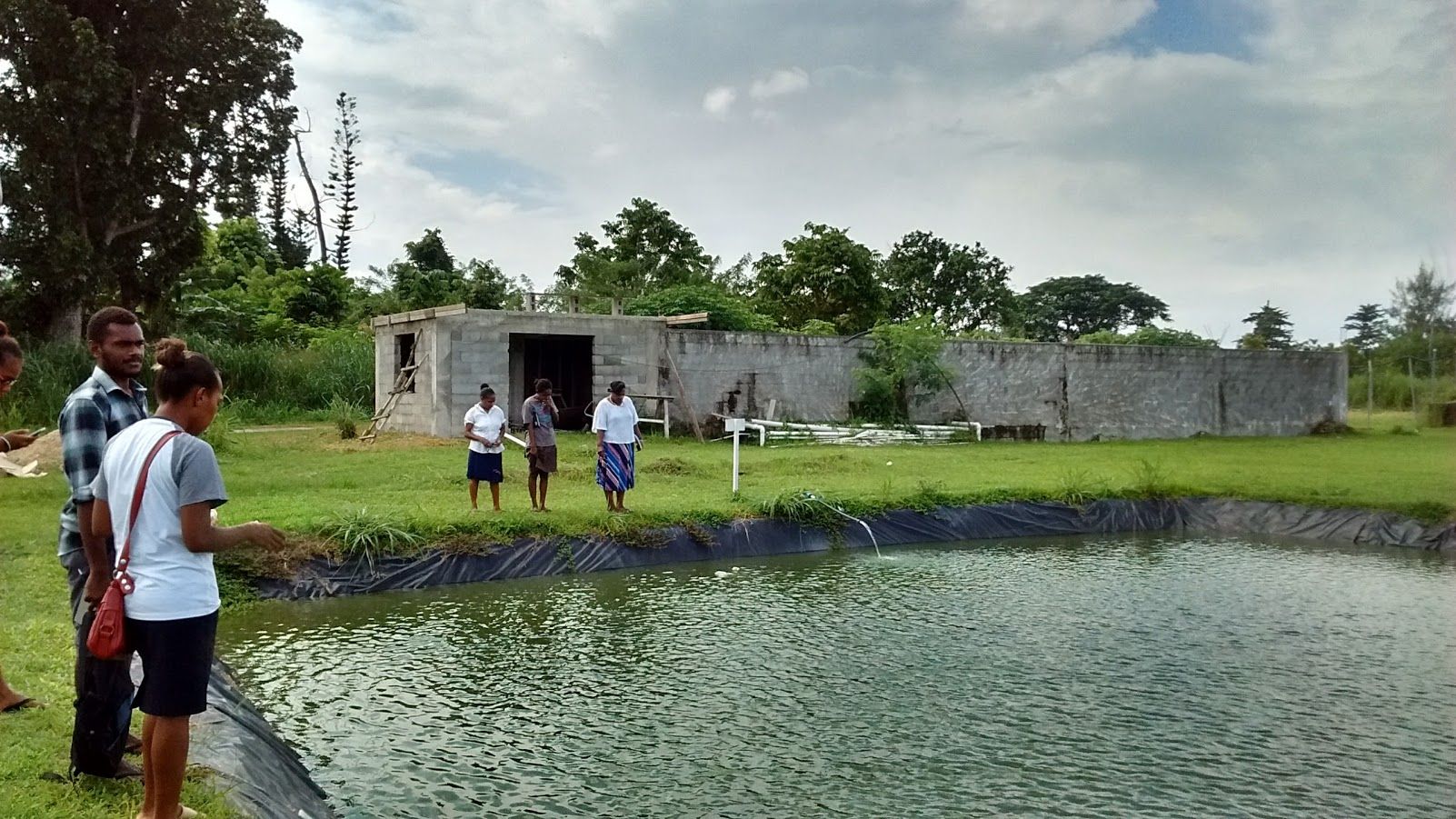Sweet potato is a stable food for over 70 percent of the Vanuatu population, most from rural areas – where they depend on traditional agriculture to provide for their dietary needs and income. According to the Secretariat of the Pacific Community, root crops such as yam, taro, manioc, sweet potato are fundamental to the diet of Ni-Vanuatu for over 2000 years.
Mr. Pakoa Leo, an agricultural expert and Coordinator of the Vanuatu Coastal Adaptation Project (VCAP) said that the crops are cultivated because of their ability to withstand weather extremes, diseases and pests.
“But there are new challenges as a result of climate change and as a result some of the crops of sweet potato are not as resistant.”
According to the Pacific Climate Change Science Program temperatures have increased for Vanuatu with annual maximum temperatures increased at a rate of 0.17°C per decade in Port Vila. The findings which were jointly researched by the Vanuatu Meteorology and Geo-hazard Department, Australian Bureau of Meteorology and the Commonwealth Scientific and Industrial Research Organisation (CSIRO) show a grim picture for Vanuatu. By 2030, under a high emissions scenario, this increase in temperature is projected to be in the range of 0.4–1.0°C. These will result in the rise of more hot days and warm nights and a decline in cooler weather.
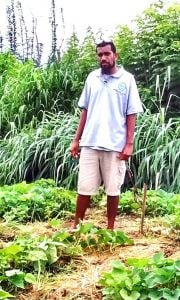
“Vanuatu crops have been impacted by climate change, with some varieties of taro and sweet potato now challenging to grow in certain areas,” said Leo. Higher carbon dioxide levels can affect crop yields. Factors such as changing temperatures, ozone, and water and nutrient constraints, have a direct impact in crop yields according to scientific research.
According to the Leo, more extreme temperature and precipitation can prevent crops from growing and extreme events, especially floods and droughts, can harm crops and reduce yields.
“It is becoming harder for farmers to rely on the same varieties of crops they have always planted, so we are experimenting with other varieties to ensure we get the most resistant crop for the current conditions,” he said.
Leo and fellow experts from the Ministry of Agriculture in Vanuatu have been cross breeding over 50 varieties of sweet potato to see which will survive through prolong droughts. “We have used sweet potato from Solomon Islands, Fiji and other island along with Vanuatu varieties, to test which will be preferred by our farmers,” Leo said. The cross breeding has led to successfully identifying preferred varieties by farmers which can survive drought conditions. “Once we successfully cultivate a certain variety, we bring the farmers in to taste and select which they prefer, then we distribute them to the farmers for their use,” Leo said.
The sweet potato takes three months to grow and Leo and his colleagues are constantly monitoring the crops.
When Cyclone Pam hit Vanuatu in 2015 – the researchers had to start their experiments from scratch again as the facilities and crops they had developed were all damaged. “We have just rebuilt this greenhouse last year, and we are continuing with the work,” he said.
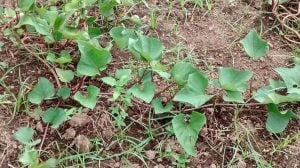
Climate change will continue to have adverse impacts on the crops of Vanuatu, but for now, climate solutions are being developed by local experts to respond to the threats to the livelihoods of Ni-Vanuatus.
The challenge however is not limited to Vanuatu – other Pacific islands are also facing food security issues as extreme weather conditions starts to impact stable crops.
According to the World Food Programme, food availability, access, utilization and stability are all some of the issues caused by the adverse impacts of climate change.
Climatic variability produced by more frequent and intense weather events can upset the stability of individuals’ and government food security strategies, creating fluctuations in food availability, access and use.
For now, the work of people like Leo are integral to ensuring that at least for places like Vanuatu, that there are locally based climate solutions in place.

